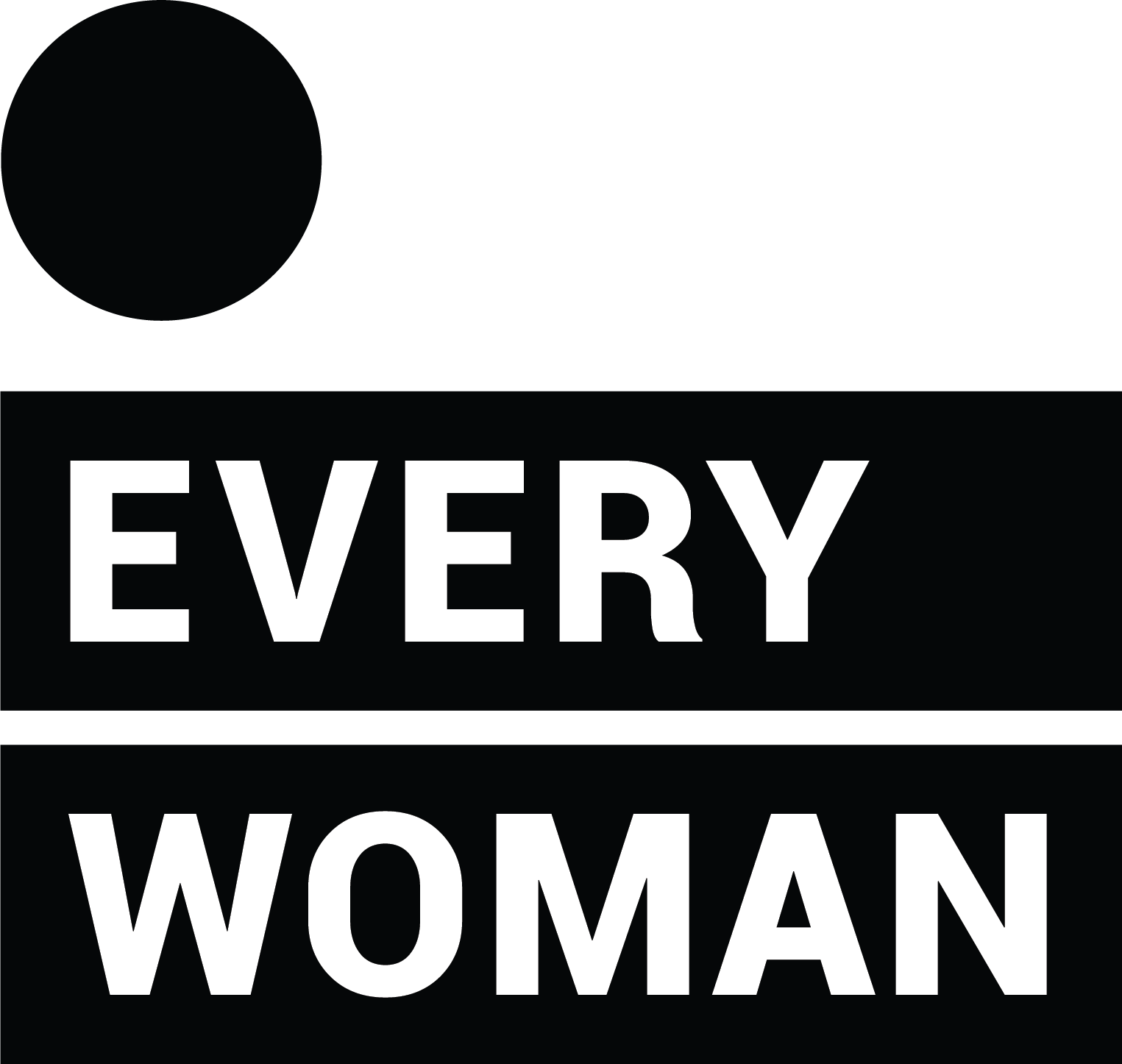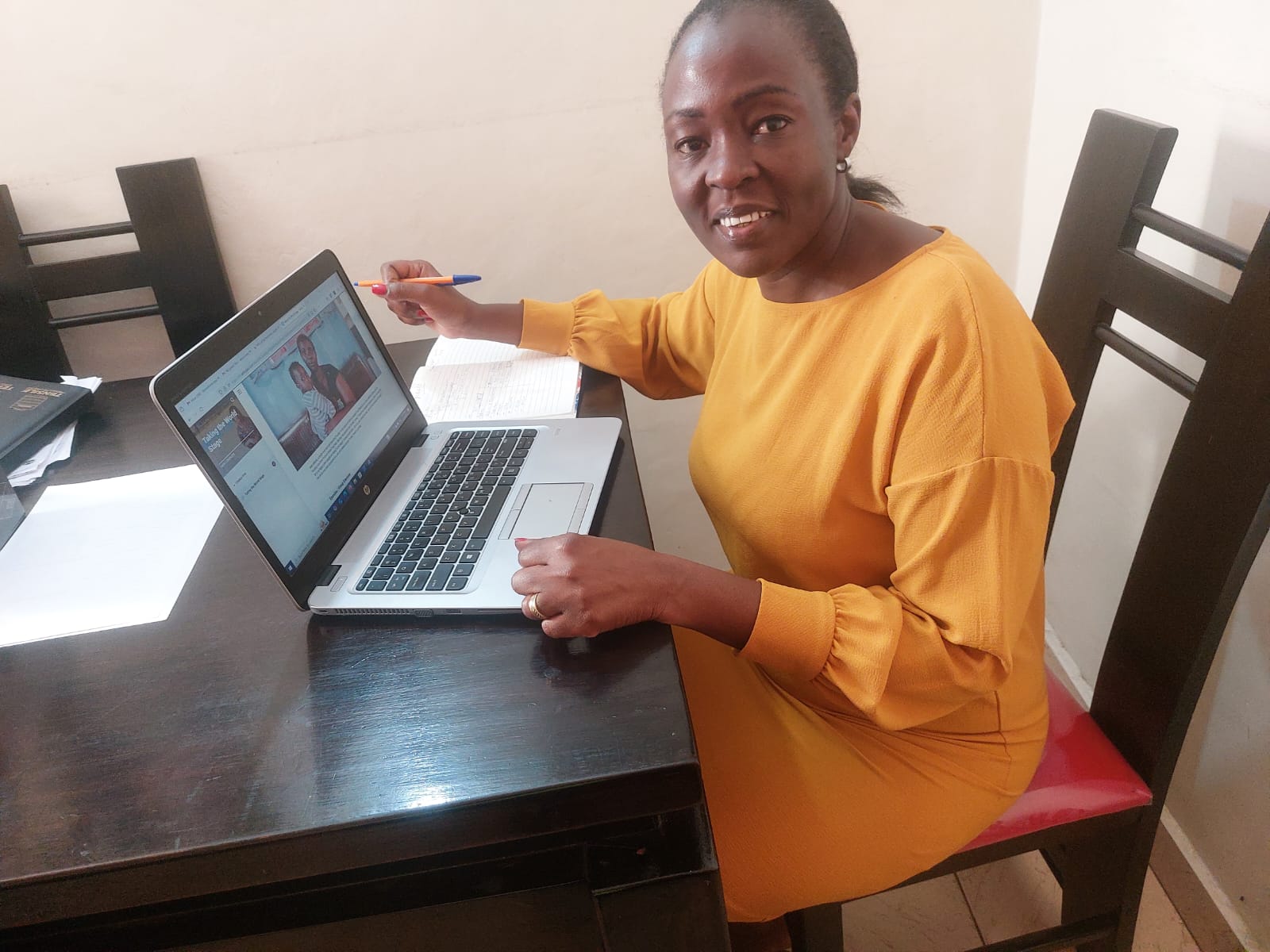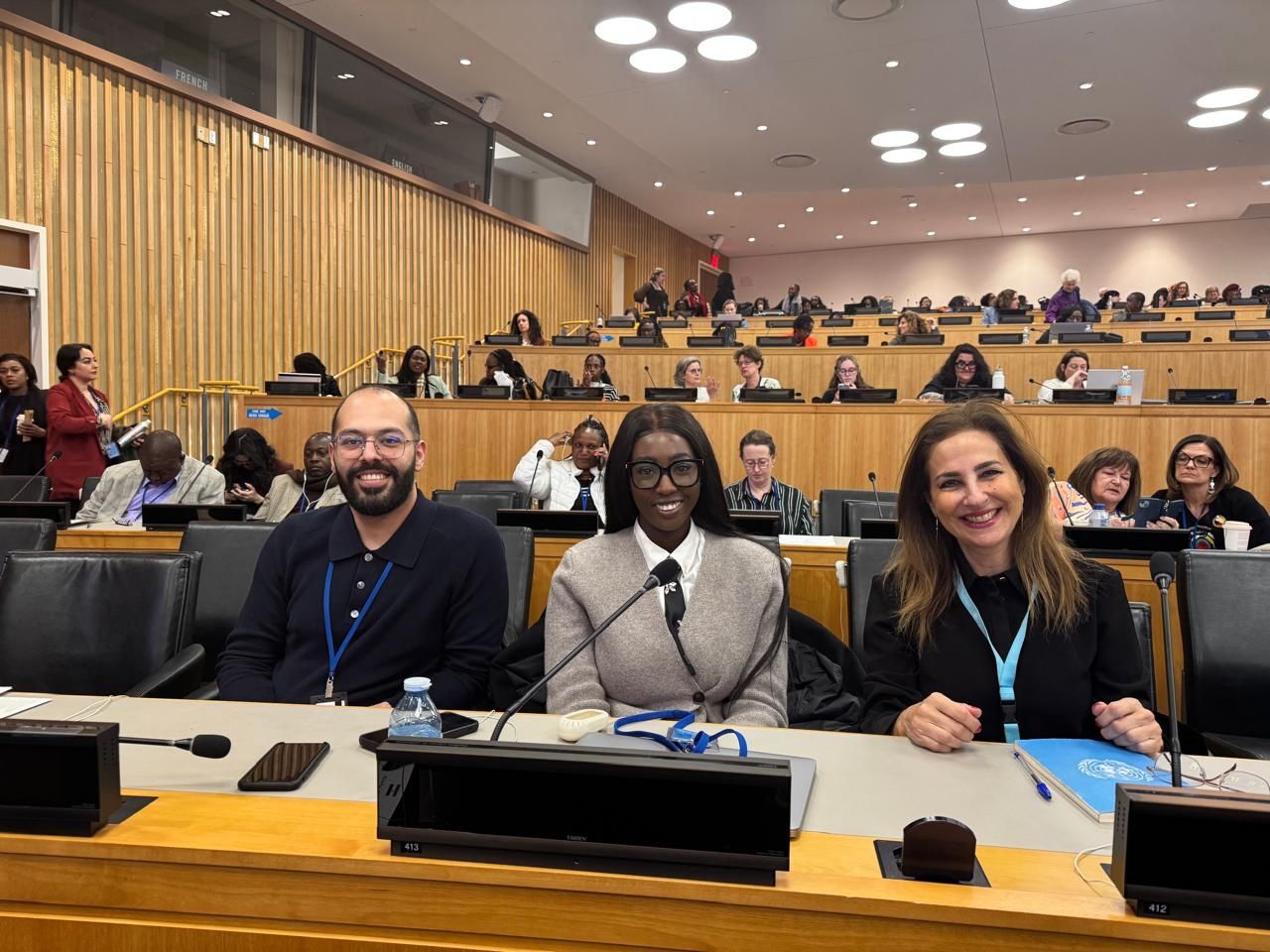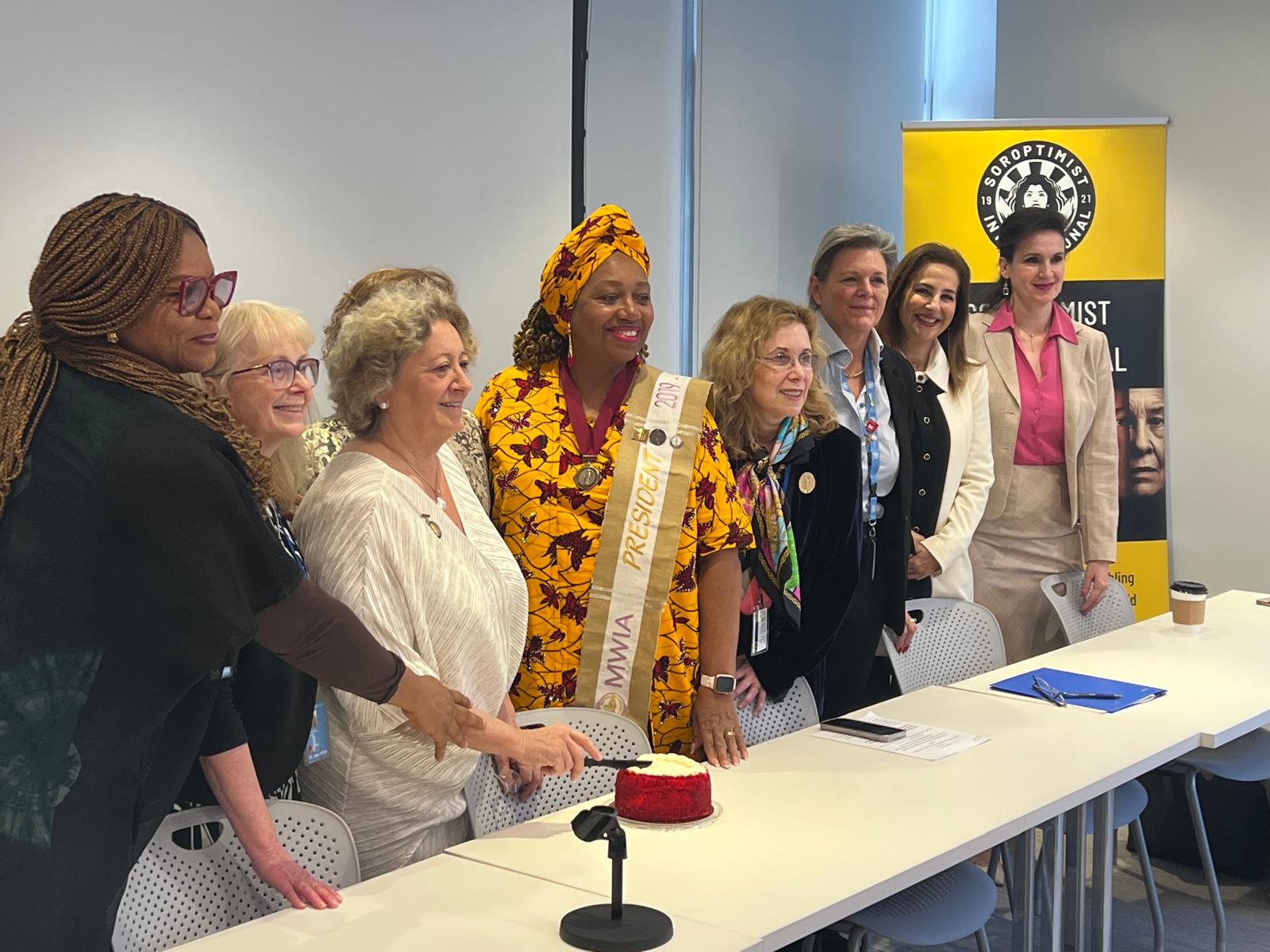#16Days Essay Series
Every year, women’s rights activists across the globe participate in 16 Days of Activism against Gender-Based Violence from November 25, the International Day for the Elimination of Violence Against Women and Girls, to December 10, Human Rights Day. This year, members of Every Woman’s Emerging Leaders Council (activists under 35) are publishing six essays from six continents on how a new Optional Protocol to CEDAW can increase global accountability — part of this year’s theme — on ending violence against women and girls.
It was a quiet Wednesday evening on September 19, 2018. I had just ended classes at the University of Ibadan and was heading to Bodija market when I noticed a young lady stumbling aimlessly. She was elegantly dressed, her makeup still fresh on her face, but her behavior was erratic. She dropped her handbag, clutched her wig, and muttered to herself — clearly disoriented. I paused, confused. The man beside me looked at her and chuckled. “Unlucky her, they don use her,” he remarked with unsettling calmness, implying she had fallen victim to ritual abuse — the practice of using, and sometimes killing women for spiritual practices, believing it will bring quick wealth.
When I returned to my hostel, I shared what I had seen with my roommates. Surprisingly, they weren’t shocked. “Normal thing na,” they replied, recounting similar tales. One spoke of a lady drugged by a trusted man for rituals. Another told of a woman who married her rich fiance not knowing he wanted to use her for rituals to gain more wealth. Stories of women being killed, violated, or maimed were met with eerie acceptance.
In Nigeria, ritual abuse often targets young women seen as possessing valuable body parts for dark practices. Women’s purity (virginity) and body parts — like breasts, hair, or nails — are viewed as essential for secret rituals intended to bring riches. Driven by desperation or greed, young men engage in these practices — known as the “Yahoo plus – internet scamming and ritual-gotten riches or cyber spiritualism” lifestyle. Believing they will secure quick life success, they resort to kidnapping, killing, and sacrificing young women.
This cycle doesn’t end; more women are killed for renewal of the ritual, or else the assumed new-found wealth ends. It’s a horrifying mix of superstition and human cruelty and a terrifying trend. The woman I saw that evening was a chilling reminder of this brutal reality, trapped in a nightmare shaped by the darkest corners of belief.
The Violence Against Persons Prohibition Act (VAPP Act) passed in 2015 prohibits such violence, but its shortcomings undermine its mission to protect women and girls. It lacks essential victim support services like counseling and shelters, leaving survivors without critical resources for healing. By failing to address emerging forms of violence, such as online harassment, the Act becomes increasingly irrelevant. Shockingly light penalties, like “not exceeding 5 years or a fine of N100,000 ($60),” do little to deter crime. Judicial discretion leads to inconsistencies and leniency, ultimately undermining justice and leading to a level of impunity. Moreover, the law’s lack of nationwide jurisdiction (Nigerian States have the option to adopt the law or not) further compromises its ability to safeguard those it aims to protect. Worse still, the overall Nigerian legal framework focuses on punishing offenders rather than preventing the crime from happening in the first place.
We can change this
This is where international law becomes crucial. Kofi Annan astutely remarked that international law binds nations to shared ideals. In a world rife with chaos, international law remains the moral compass guiding humanity toward a brighter, unified future.
Toward that end, a new Optional Protocol to CEDAW specific to violence against women and girls would push Nigeria to address the VAPP Act’s shortcomings by mandating that the law be updated to include victim support services like counseling and shelters, recognizing emerging forms of violence such as online harassment, and establishing preventive measures such as violence prevention education in Nigerian schools, to deter crime. It would tackle gender-based violence holistically, and include harmful practices like child marriage advancing Nigeria’s SDG 5 goals, while urging the Nigerian government to effectively domesticate the Maputo Protocol, which Nigeria ratified in 2004 but has not implemented.
A new Optional Protocol to CEDAW is the needed international law and instrument that would make the Act a true shield for women and girls and prevent more young women from being sacrificed by a society that has accepted violence against them as “normal.” This isn’t just a call for legal reform; it’s a fight for survival, and we need the international community to step in. In his final speech as UN Secretary-General, Kofi Annan laid out four principles for global security, including that the security of every one of us is linked to that of everyone else. An Optional Protocol to CEDAW is the lifeline we need to achieve global security for all women and girls.
IJEOMA NNANTAH (Nigeria) serves as the Chair of the Emerging Leaders Council at Every Woman . She is a Legal Research Analyst at One Bread Foundation, Inc., CA, USA—an anti-trafficking organization—and is a trained SDGs Knowledge Facilitator specializing in Sustainable Development Goals 5 and 16. At the CCPJD Human Rights Center, she served as a Women and Girls’ Rights Advocate and was recognized as the 2022 Woman of the Year for Gender Achievement Justice.
She is the Founder and Chairman of the Sickle-Free-Births Advocacy Initiative, a Nigerian NGO focused on preventing further births of Sickle Cell children. Ijeoma is a Lawyer and Researcher in Human Rights, Bioethics, and Medical Law. She is the author of Rights of a Sickle Cell Child to a Wrongful Life Claim in Nigeria (cifilejournal.com) published with the CIFILE Journal of International Law.
Join the call for a new OP-CEDAW to end violence against women and girls! everywoman.org/#join
SOURCES
Feyi Ogunade, “Yahoo Boys scammers dabble in dark magic,” ENACT Observer, 22 Aug 2024, https://enactafrica.org/enact-observer/yahoo-boys-scammers-dabble-in-dark-magic
Alliances for Africa, “Shadow Report on Nigeria’s Implementation of the Protocol to the African Charter on Human and Peoples Right on the Right of Women in Africa,” 21 Apr 2022, https://alliancesforafrica.org/shadow-report-on-nigerias-implementation-of-the-protocol-to-the-african-charter-on-human-and-peoples-right-on-the-right-of-women-in-africa/





